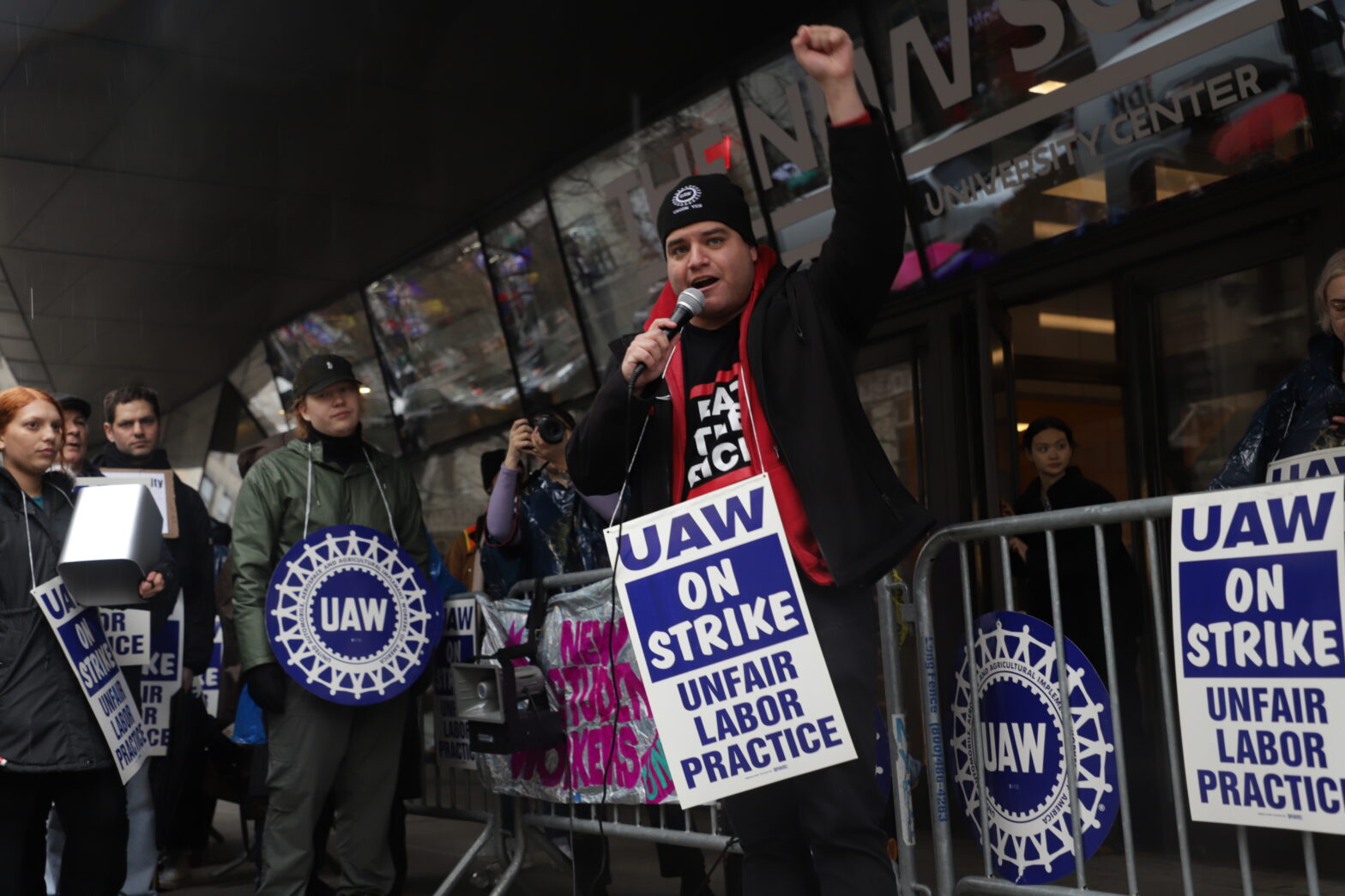In the fall of 2022, the part-time faculty (PTF) union ACT-UAW Local 7902 at The New School went on strike for nearly a month. Just over a year later, the university has found itself amid another strike led by the academic student worker’s union SENS-UAW Local 7902. The idea of experiencing an indefinite disruption of classes again is leaving some students feeling uneasy.
The 25-day PTF strike brought the university to a virtual standstill as members of the community stopped their work in solidarity. However, the lack of formal instruction and communication from the administration left many students frustrated. Toward the end of the strike students occupied the University Center. The group later demanded tuition refunds for the classes they missed.
As the first day of picketing for the SENS strike began, Luke Gladen-Kolarsky, a third-year in contemporary music said, “I hate the prospect of being out of school again for an extended period of time, but I definitely think that the student workers need to be paid what they’re worth.”
Another third-year contemporary music student Carson Strassman said that he felt conflicted. “I think it’s super important that the student workers and the academic workers get paid.” But he also expressed that he went into the semester wanting to do well, and the current strike stands in the way of this goal.
Gladen-Kolarsky said that his peers were struggling with mental health when the school paused during the PTF strike.
“I constantly think about dropping out, but transferring from The New School is purposefully difficult,” Strassman said.“I know many people who have transferred in and out of The New School and it is very difficult because your credits don’t transfer correctly. People are losing a year of academic credit.”
Gladen-Kolarsky also said that he knows people who are considering dropping out. “It’s not worth it to be paying as much money as the New School is charging to not be learning stuff and not being in school.”
Strikes are not the only hurdles that students have had to overcome at The New School. The COVID-19 pandemic disrupted in-person learning opportunities for students nationwide and the university’s handling of a post-pandemic reality also brought about criticism from New School students.
“I feel like with COVID I already missed out so much and with the strike last year and now this again, I feel like I’ve only gotten, truly, a year and a half of schooling,” Michael Distefano, a senior at Eugene Lang College of Liberal Arts said.
As PTF members are not allowed to support the strike and full-time faculty (FTF) members have more flexibility in their decisions, class schedules vary depending on the faculty member. “I mostly have full-time faculty professors, and they’re a little quiet about it. It’s actually a little strange. But my classes have all remained the same because of that, I think,” he said.
Students expressed a change of momentum between the current SENS strike and the PTF strike from three semesters ago. “I remember hearing a lot more about it before it happened. This one feels like it was a little bit less vocalized,” Gladen-Kolarsky said.
Strassman also felt a lack of communication between the student body and SENS. “During the teacher strike, the students were a lot more directly involved with it because the teachers were the ones supplying the information,” Strassman said. “But with the [SENS] strike, the student body is a lot more removed from the conversation because it’s not happening inside the classroom.”
Although Strassman felt like the two strikes were communicated differently with students, the university’s response remains the same. “It’s interesting because we have experience with the one strike, the administration knows the tactics that the union is going to impose, and they know how to combat that,” he said.
“I think last time the [PTF strike] brought into light a lot of concerns that I wasn’t aware of and now it’s almost not surprising but still incredibly frustrating,” Layla Greene, a second-year contemporary dance student, said.
The sentiment of unity among students is important and students like Strassman are pushing to bridge that gap. “We need to think outside the box…how we can creatively work together and have these conversations one-on-one and with the student body,” he said.
The strikes and the pandemic have jeopardized the student experience, and for some, pushing through is proving to be difficult.
“I do love this school, I love my professors so much, I love the people I’ve met here, I cherish my education so deeply that it’s really hard for me to keep supporting an institution that’s not delivering on its promises,” Greene said.
Additional reporting by Rowan Cahill








Leave a Reply